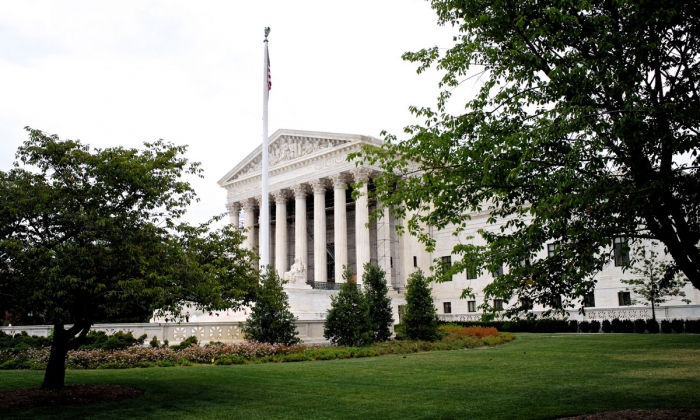You are here
Home 🌿 Recreational Marijuana News 🌿 California closer to being a 'sanctuary state' for marijuana 🌿California closer to being a 'sanctuary state' for marijuana

The California State Assembly on Thursday evening passed legislation that would make Cali a ‘sanctuary state,’ and prohibit state and local agencies from using resources to assist federal law enforcement authorities against people in compliance with state law.
The successful Assembly floor vote means the bill has cleared its first house, before the Friday deadline, and now heads to the State Senate to be heard by the Senate Public Safety Committee.
The legislation, authored by Los Angeles Assemblymember Reggie Jones-Sawyer, AB 1578, will protect Californians who are operating lawfully under our state laws by providing that absent a court order, local and state agencies, including regulators and law enforcement, shall not assist in any federal enforcement against state authorized medical cannabis or commercial or noncommercial marijuana activity.
In 2016, the voters of California overwhelming approved Proposition 64, the Adult Use of Marijuana Act, which provided that adults 21 and over could purchase and possess a limited amount of marijuana for personal use. However, President Donald Trump and Attorney General Jeff Sessions have hinted at a forthcoming crackdown on the recreational use of marijuana in states that have approved adult personal use.
President Trump made his intentions loud and clear in recent weeks when he turned rhetoric into policy with his signing statement to the Consolidated Appropriations Act, declaring the federal government’s intention to prosecute and punish states and their residents for using medical marijuana, never mind its recreational use. Additionally, Attorney General Sessions just doubled down by re-declaring the war on drugs. He called for reinstating mandatory minimum sentences and prosecuting all drug-related charges to fullest extent of the law.
These policies rollback the gains California has made in fighting mass incarceration and reducing the number of individuals in our overcrowded prisons and jails.
Black and Latinx persons have the most to lose. They disproportionately comprise the majority of individuals arrested on marijuana charges. For example, despite similar rates of drug use and sales across racial lines, from 2006 to 2015, Black people in California were five times more likely than their white counterparts to receive marijuana felonies.
“We supported and passed Prop 64 because of decades of California law enforcement applying marijuana prohibition unequally across racial lines,” said Alice Huffman, president of the CA-Hawaii NAACP. “We do not want to see local law enforcement going back down this path by supporting federal intervention into cannabis activity that is fully legal under state law.”
Approximately 92 percent of drug enforcement is done at the state and local level. Using state and local resources for the new administration’s agenda undermines the will of California voters and the state’s right to enact and enforce its own laws. California would be paying the feds to break its own laws.
In response, Lt. Commander Diane Goldstein (Ret.), executive board member of the Law Enforcement Action Partnership, remarked, “The passage of AB 1578 will reduce the harms of the gray and illicit market in our communities, ensuring public safety and health. Critically, this bill demonstrates to Californians that law enforcement understands and respects that police legitimacy requires public support. Law enforcement cannot build community trust if we’re undermining the law.”
There is a real concern about giving the Feds access to information about California residents, especially dangerous for medical cannabis patients and industry providers. Thousands of Californians could suddenly find themselves targeted, harassed, intimidated or prosecuted by the federal government.
“Trump and Sessions’ threat to California is real,” said Drug Policy Alliance state director Lynne Lyman. “It threatens to ensnare law-abiding residents in costly—financially and personally—legal battles and possible incarceration or deportation. It is dangerous and it is expensive. Which means passing Assembly Bill 1578 is urgent.”
420 Intel is Your Source for Marijuana News
420 Intel Canada is your leading news source for the Canadian cannabis industry. Get the latest updates on Canadian cannabis stocks and developments on how Canada continues to be a major player in the worldwide recreational and medical cannabis industry.
420 Intel Canada is the Canadian Industry news outlet that will keep you updated on how these Canadian developments in recreational and medical marijuana will impact the country and the world. Our commitment is to bring you the most important cannabis news stories from across Canada every day of the week.
Marijuana industry news is a constant endeavor with new developments each day. For marijuana news across the True North, 420 Intel Canada promises to bring you quality, Canadian, cannabis industry news.
You can get 420 Intel news delivered directly to your inbox by signing up for our daily marijuana news, ensuring you’re always kept up to date on the ever-changing cannabis industry. To stay even better informed about marijuana legalization news follow us on Twitter, Facebook and LinkedIn.




